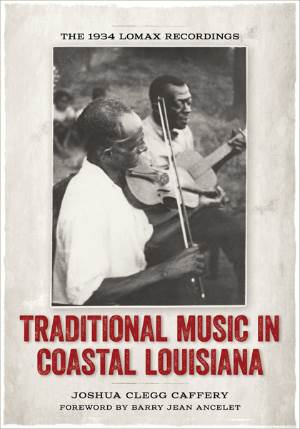Although the 1934 field recordings of father-and-son folklorists John and Alan Lomax helped preserve various forms of Southwest Louisiana’s traditional music, ironically no textual studies similar to the 1917 publication of English Folksongs from the Southern Appalachians have ever been done on this body of work—until now. A founding member of the Red Stick Ramblers and later an integral cog in Feufollet, Joshua Clegg Caffery’s groundbreaking Traditional Music in Coastal Louisiana is the first to transcribe and comprehensively examine the entire Lomax corpus with translated French lyrics. A heady 344 pages, Caffery organizes the collection by the parish where each field recording occurred, then by performer and song. Oftentimes, he cites similar versions of the song and addresses the differences between them. Much of what interested Caffery is the technical structure of the song, such as the number of syllables per line and where the caesuras (pauses or breaks) fell within a line, etc. Occasionally, he identifies a song that morphed into a better-known dancehall version and notes certain phrases that appear in subsequent songs.
Throughout these pages, interesting facts abound, such as how some French songs were not exported from Nova Scotia or Medieval France but were, surprisingly, a direct translation of an English counterpart (“Papier d’épingles”). Interestingly, the Hoffpauir Family, who comprise the bulk of the Iberia Parish chapter, were not Acadians but were from France’s Alsace Lorraine region, a further testament to the complexity of Southwest Louisiana music. There are also discussions on the mythical Joe Féraille, a cousin of a Haitian voodoo deity; a stray Cajun song about Islamic fanaticism; ring shouts (the spiritual precursor to jurés); and the symbolism of trains in blues. An invaluable resource for generations to come.





